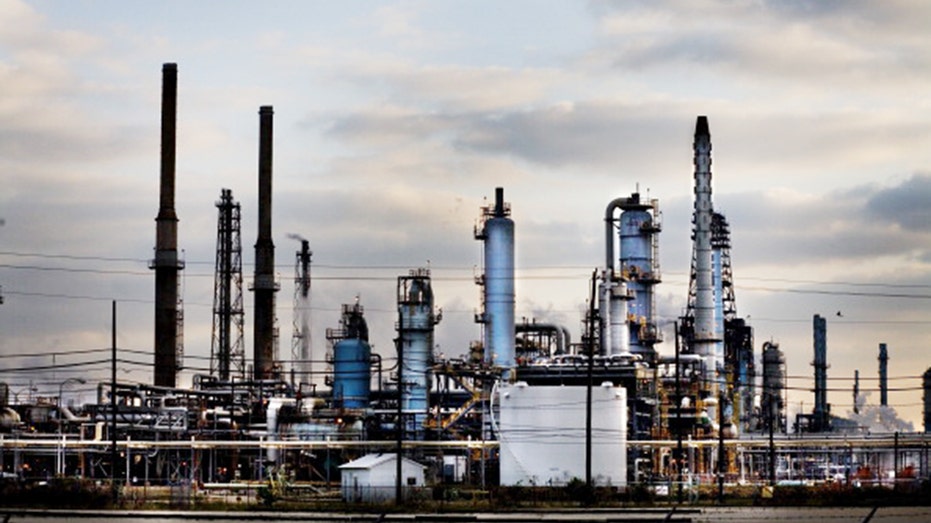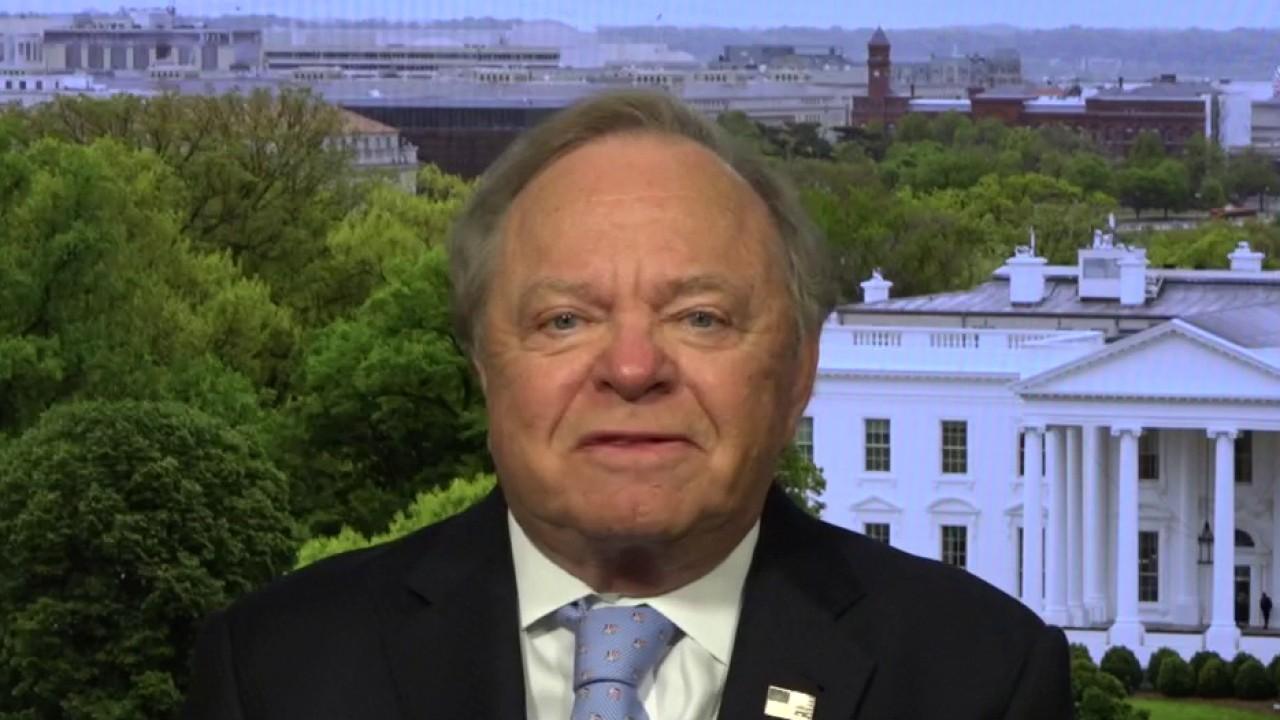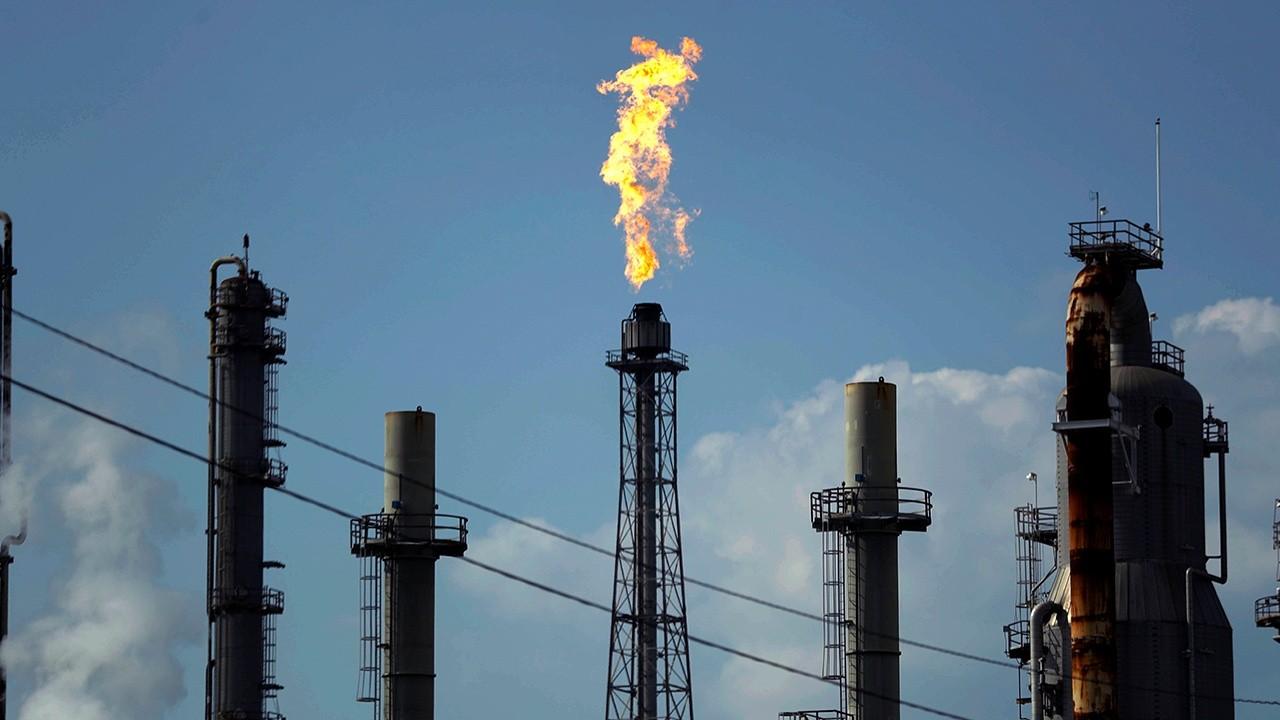Shale producers scramble for federal permits in run-up to presidential election
Federal permitting at the largest U.S. oilfield is up 80% in the last three months
Concerned that Democrat Joe Biden might win the presidency and crack down on shale-drilling, U.S. producers are stockpiling drilling permits on federal land ahead of the 2020 election.
As Reuters reported Tuesday, federal permitting at the largest U.S. oilfield in the Permian Basin, which stretches across Texas and New Mexico, is up 80% in the past three months.
OIL PRICES TUMBLE MORE THAN 1% AS SAUDI ARABIA MAKES DEEP CUTS
Analysts reportedly attribute the rise to a "hedge" against a win by the former vice president; national polls have shown him with a narrow lead over President Trump., the Republican incumbent.
While Biden has said that he does not want to ban fracking – or hydraulic fracturing – outright, his climate plan includes banning new oil and gas permits on public lands.

Baytown Exxon gas refinery in Texas. (Photo by Benjamin Lowy/Reportage by Getty Images)
Fracking is environmentally controversial, as it involves pumping water, sand and chemicals into rock at high pressure to release oil or natural gas.
Industry groups fret that restricting it would hurt the economy and knock America off its pedestal as the world’s largest crude oil producer.
U.S. crude output was boosted to around 12 million barrels per day last year through fracking.
At the end of August, producers had received 974 permits thus far this year for new wells on federal land in the Permian.
In 2019, there were 1,068 permits in total and 265 in 2018.
Federal permits last for two years and can be extended another two, but there is no guarantee that routine permit extensions would continue in the future.
Crude prices plunged as demand sagged amid the ongoing coronavirus pandemic and have remained stuck near $40 a barrel.
CLICK HERE TO READ MORE ON FOX BUSINESS
In addition, data from energy-equipment producer Baker Hughes showed that the number of oil and gas rigs drilling new wells in the U.S. hit record lows for 15 weeks and was 71% lower last week than the year before.
U.S. oil production remains below 2019’s peak. Analysts do not expect a sharp rebound for a while.





















